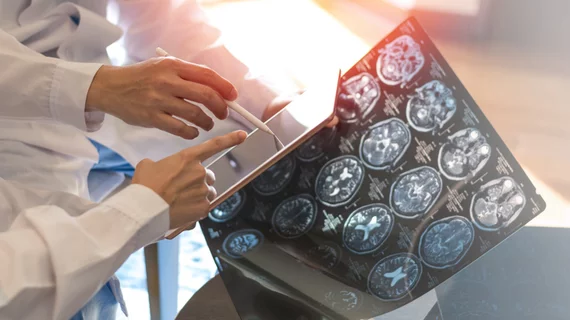Health groups launch new projects investigating COVID-19’s lingering impact on the brain
As more patients recover from the coronavirus, questions remain about its lingering impact on the brain. The National Institutes of Health and the University of South Carolina recently announced two separate projects to search for answers.
On Tuesday, the NIH launched a database to collect clinical information on COVID-19-related neurological symptoms, complications, outcomes, and their effect on preexisting neurological conditions. NIH said the database will offer participating groups de-identified information and biospecimens to gain insight into how the novel virus affects the nervous system.
NYU Langone Health will maintain the COVID-19 Neuro Databank/Biobank, known as NeuroCOVID.
“We know that COVID-19 can disrupt multiple body systems but the effects of the virus and the body’s response to COVID-19 infection on the brain, spinal cord, nerves and muscle can be particularly devastating, and contribute to persistence of disability even after the virus is cleared,” Barbara Karp, MD, program director at NIH’s National Institute of Neurological Disorders and Stroke, said in a statement. “There is an urgent need to understand COVID-19-related neurological problems, which not uncommonly include headaches, fatigue, cognitive difficulties, stroke, pain, and sleep disorders as well as some very rare complications of serious infections.”
Researchers and clinicians can request access to the database here.
The University of South Carolina launches new study
On a similar note, the University of South Carolina recently announced a new study to better understand COVID-19’s individual neurological effects in patients recovered from the disease.
USC researchers are partnering with Palmetto Health-USC Medical Group Division of Infectious Diseases to study people who tested positive for the novel virus and have recovered for 28 days, are at least 20 years old and MRI-eligible.
Participants will undergo a 1-hour scan at Prisma Health Heart Hospital in Columbia, South Carolina, and will need to complete virtual tests to assess their memory, attention and language capabilities.
"There’s a lot of people who get COVID-19 who are not the same—and will not be the same—maybe, ever again for the rest of their lives," Julius Fridriksson, MD, a professor at USC who will be co-leading the study, told WLTX News19 in a report published Jan. 25.

